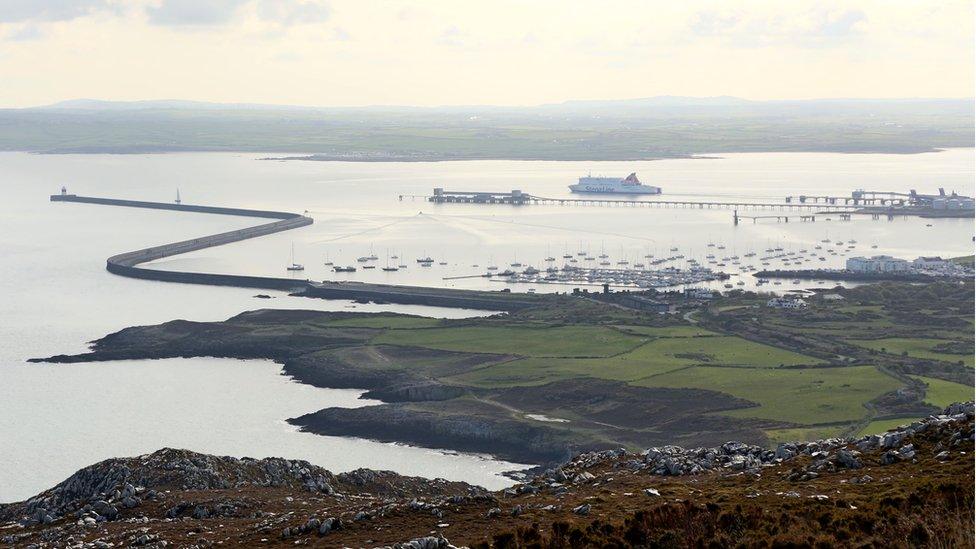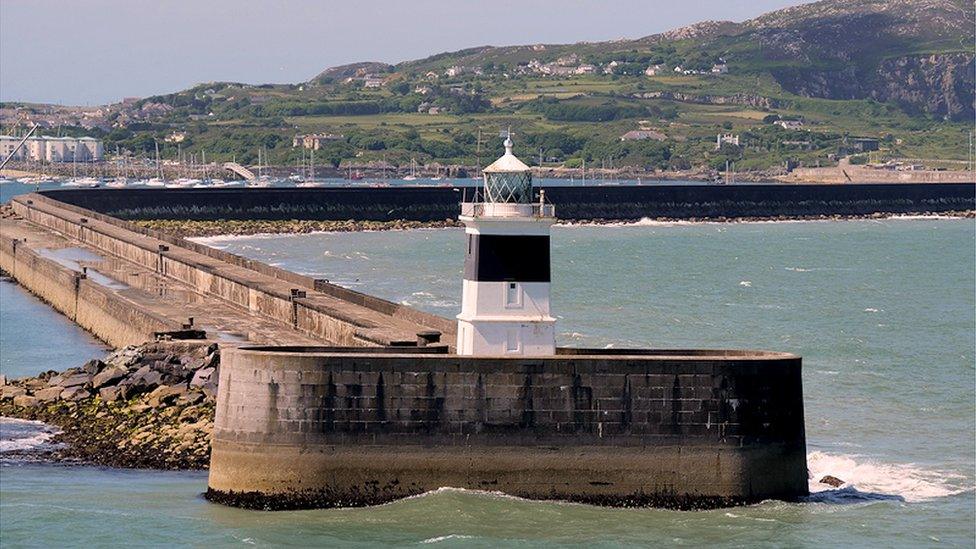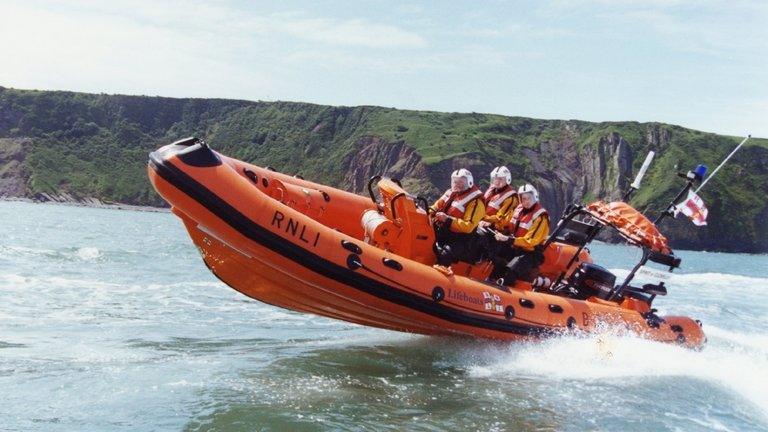Holyhead port under threat from breakwater erosion
- Published

The breakwater (left to centre) has protected the port and town of Holyhead since 1873
Action is needed to repair damaged Victorian sea defences protecting a Welsh port, experts have warned.
Anglesey council has been told the 1.7 mile (2.4km) breakwater at Holyhead - the longest in Britain - is suffering from erosion to its rubble mound base.
Ferry company Stena Line which owns the structure estimated in 2013 that it was costing £150,000 a year in maintenance.
Consultations and a public meeting are being held to support the case for Welsh Government funding for repairs.
The Grade II-listed structure was opened in 1873 after 28 years of construction involving more than 1,300 workers.
Anglesey council said the rubble mound on which the wall stands has gradually been eroded by the constant wave action and could be breached within 15 years.

Waves are eroding the rubble on which the breakwater stands
In 2017, with Welsh Government and Stena Line support, the authority drew up an outline business case to look at the options for the refurbishment of the breakwater.
"The longevity of the breakwater is essential to ensure continued investment to the area and to attract future investment," the council told the Local Democracy Reporting Service.
A public event is being held at Holyhead Town Hall at 15:00 GMT on 29 March as part of the consultation process.
Meanwhile members of the Holyhead and District Angling Club, external have been discussing the need for breakwater repairs on their Facebook page.
Nic ap Clayton said he had "never seen the back of the break so low" and feared a major breach if it was not reinforced.
Dave Cave said that without the breakwater there would be no port, no marina and sailing club and no boatyard.
He claimed it would only take one northerly storm "and it would all be smashed to bits".
- Published4 February 2013
